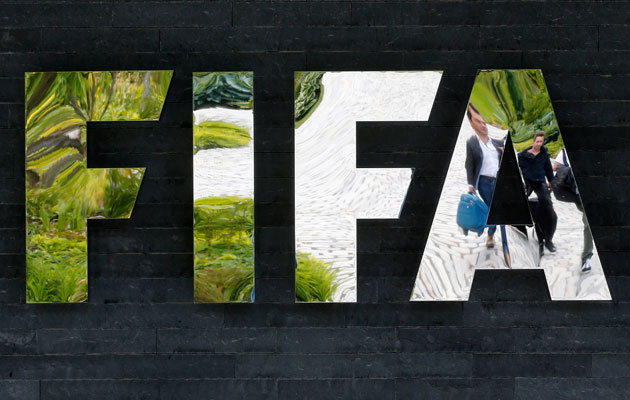FIFA’s battered image claimed another casualty with the Nobel Peace Centre following Interpol in calling a halt to its partnership with the embattled world football federation.
For the past three years president Sepp Blatter has exhorted his listeners at almost every occasion and every press conference to share the Handshake of Peace.
However events in Zurich over the last three weeks have persuaded the Nobel Peace Centre that FIFA, with senior officials facing corruption charges in the United States, is not an appropriate partner with which to share the moral high ground.
A statement from the Peace Centre acknowledged the positive symbolism of the Handshake for Peace but urged the Norwegian football federation to come up with a different promotional context and/or partner. Executive director Bente Erichsen said: “We still have faith in the idea behind Handshake for Peace and would wish that the initiative will live on.”
Erichsen took a leading role when the Nobel Centre and FIFA launched the Handshake partnership during the federation’s congress in Budapest in 2012. Then she envisaged the agreement as the “start of a close and solid relationship, with huge potential.” She added: “I’m sure this partnership can contribute to the good of the game and develop respect.”
Clearly the sense of respect has been tainted by recent events.
Blatter had wanted to enforce not only a handshake before kick-off between referee and team captains but again at the centre of the pitch at the final whistle. His grandiose vision for the handshake was exemplified in his suggestion that it “should be an example not only in football but throughout our entire society.”
Earlier in the day Blatter, unlike in 2011, confirmed that he really does intend to relinquish the presidency as soon as a successor is elected, probably in December.
Confusion had arisen over the weekend after a report in Schweiz am Sonntag that the 79-year-old Swiss was having second thoughts about his shock U-turn announced only four days after his re-election last month.
The article had suggested that Blatter was coming under pressure from some African federations – fearful of a ‘UEFA takeover’ – to reverse his decision. Support for Blatter had come recently from Klaus Stoehlker, an old associate who was a behind-the-scenes PR adviser in the run-up to FIFA Congress.
Blatter polled 133 of the 209 votes and was thus mandated for a fifth term in office after the withdrawal of his opponent, Prince Ali of Jordan who had secured 73 votes.
In a short statement, the world football federation said that “Klaus Stoehlker’s mandate from the FIFA president ended on 31 May 2015″ and noted that Blatter “would like to point to his remarks from 2 June.”
In his press conference announcing his volte-face, Blatter said: “I shall not be a candidate.”
Domenico Scala, independent chairman of the audit and compliance committee who is overseeing the transfer of power, had been quick to reject the article’s contention about Blatter’s supposed change of heart.







